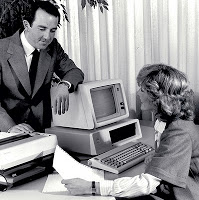Analysis of future success
 A scientist, engineer and data analyst says more major companies are looking to data-driven solutions to HR problems.
A scientist, engineer and data analyst says more major companies are looking to data-driven solutions to HR problems.
Michael Arena has just finished a project using digital data analytics to assess employee functionality at major car-maker General Motors. Arena says talent analysis is undergoing a revolution.
“Talent management is a soft space. Historically, we haven't been able to measure definitely the things that we intuitively believe to be true,” says Arena, “but businesses are mandating it... HR is being held accountable to deliver business results, and the language of the business is analytics.”
Analysis used to interpret the past and future direction of business is a consequence of “the recognition that the efficient use of labour and deployment of resources is critically important to the business results of the company,” says Mark Endry, CIO of Arcadis US. Endry served for six months as interim senior vice president of HR at the $3.3 billion company.
HR departments need to move on from using accumulated data just to report head-count or turnover information.
“We're so far beyond that now,” says David Crumley, vice president of global HR information systems at Coca-Cola Enterprises, “HR wants to expand its capabilities to help the business grow. To do so, we need to be able to be more precise and surgical about our interventions. That's where workforce analytics is huge - helping you determine where to place your bets.”








 Print
Print